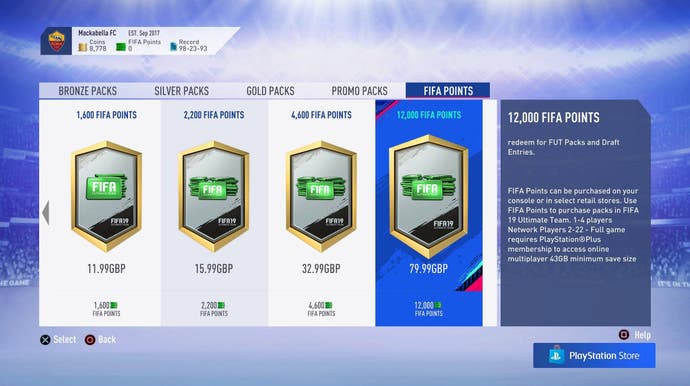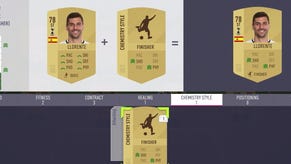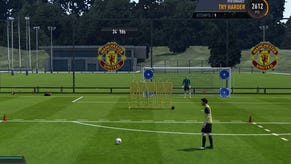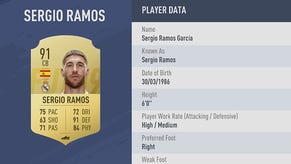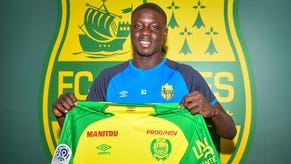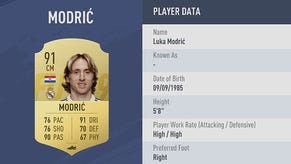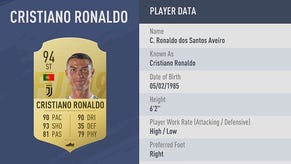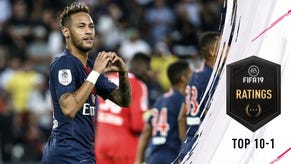EA buckles in Belgium, stops selling FIFA Points following loot box gambling pressure
New Kompany policy.
EA has announced plans to stop selling FIFA Points in Belgium following government pressure over loot boxes.
In FIFA Ultimate Team, you can spend real world money on FIFA Points, which can then be used to buy card packs.
In September 2018, the Belgian government, which had declared loot boxes to be a form of gambling because players don't know exactly which items a box may contain when buying one, launched a criminal investigation into EA after the publisher refused to modify FIFA's randomised card pack loot boxes in order to comply with the country's gambling laws.
Belgium's Gaming Commission determined loot boxes found in FIFA 18, Overwatch and Counter-Strike: Global Offensive were an "illegal game of chance", and thus subject to Belgian gambling laws.
Following the ruling, Blizzard, Valve and 2K Games all elected to disable loot boxes in their games in Belgium. EA, however, had done nothing - until now.
"After further discussions with the Belgian authorities, we have decided to stop offering FIFA Points for sale in Belgium," EA said.
This change will come into effect by 31st January, which means from then players in Belgium will not be able to buy points to buy FUT packs. They'll still be able to play Ultimate Team and use their existing players, and they'll still be able to obtain FUT packs with FUT Coins, the virtual currency you earn through playing the game. But they will no longer be able to pay to get ahead.
"We apologise to our players in Belgium for any inconvenience caused by this change," EA said.
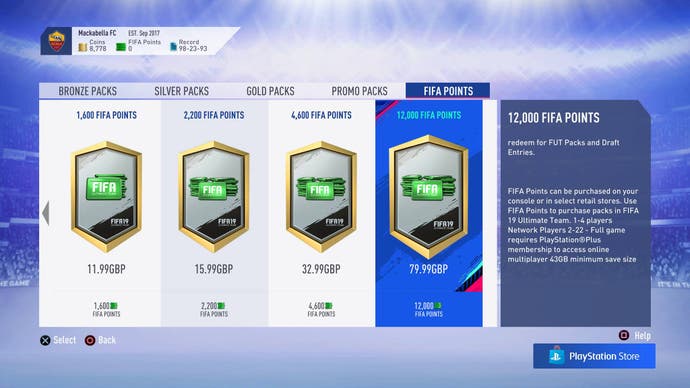
Last year, EA came out strongly in saying it didn't believe loot boxes were a form of gambling. In April it said its game were "developed and implemented ethically and lawfully around the world" and it did not agree its games could "be considered as any form of gambling." This, EA CEO Andrew Wilson said in May, was because "players always receive a specified number of items in each pack" and because it doesn't "provide or authorise any way to cash out or sell items or virtual currency for real money".
However, as Eurogamer has reported, when it comes to FIFA, you can most definitely cash out.
For FIFA 19, EA added FUT card pack probabilities for the first time. This system tells you the percentage chance you have of obtaining a card of a certain quality from a pack (for some cards, the percentage chance is shockingly low). This was seen as an attempt to add transparency to Ultimate Team, which makes a billion dollars a year for EA.

In its statement issued today, EA restated its belief that loot boxes are not a form of gambling. Belgium isn't FIFA's biggest market, of course (and EA insists the change will not impact its financial performance), but you can tell from the wording EA isn't happy about the situation.
"We seek to bring choice, fairness, value and fun to our players in all our games," EA said. "In addition to providing players options in how they play, we include pack probabilities in our games for the transparency players want to make informed content choices. While we are taking this action, we do not agree with Belgian authorities' interpretation of the law, and we will continue to seek more clarity on the matter as we go forward. The impact of this change to FIFA Ultimate Team in Belgium is not material to our financial performance."
Video game publishers are coming under increasing scrutiny over loot boxes, not just from governments but also player communities. In the UK, the Gambling Commission has so far said it does not believe loot boxes are gambling, but just last week the government asked for views on a raft of subjects around video games, including the links between gaming and gambling.
